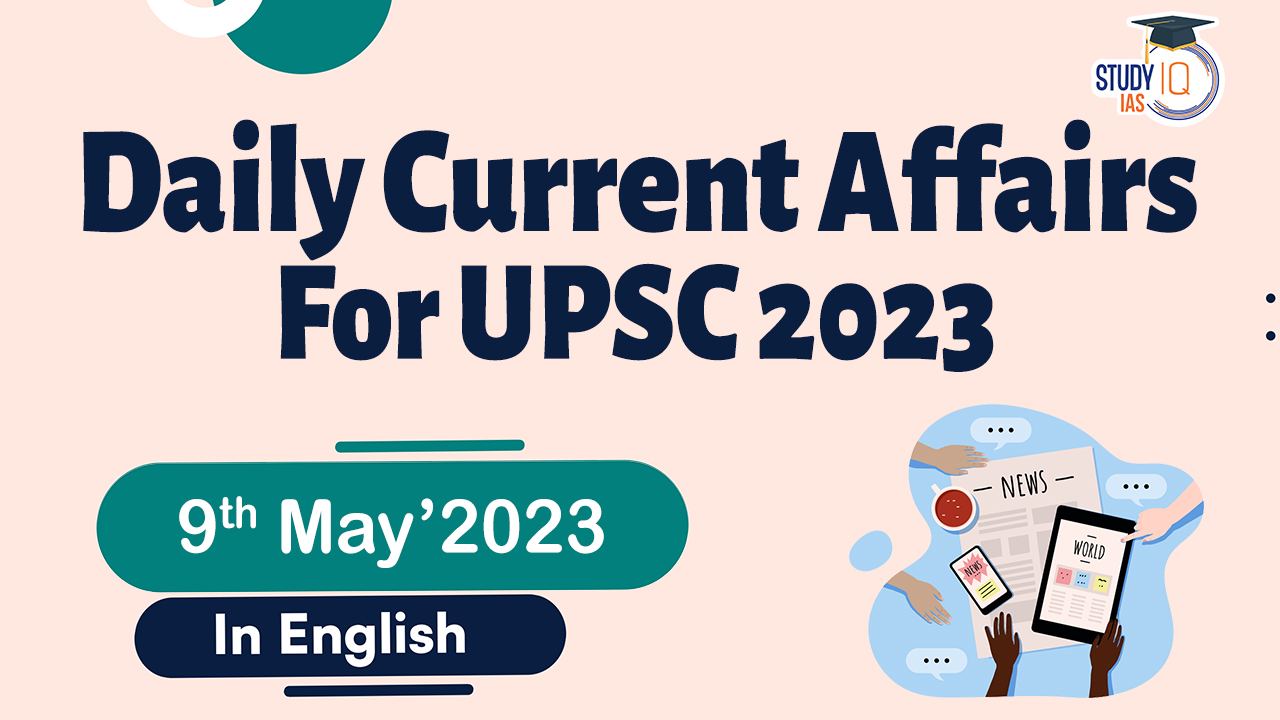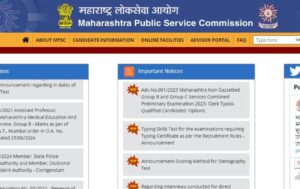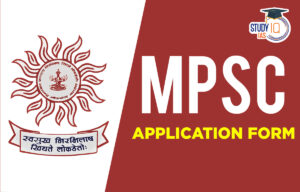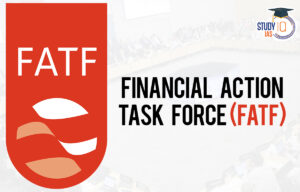Daily Current Affairs for UPSC 2023
Q) Which one of the following statements is not correct about Thalassaemia?
- It is a genetic-blood disorder
- It is caused by mutations in genes that control hemoglobin.
- It can be inherited from parents to children
- It can be prevented by appropriate vaccination.
Daily Current Affairs for UPSC – 8 May April 2023
Explanation:
- Option (1) is correct: May 8 marks World Thalassaemia Day, which is a special day dedicated to raising awareness about a genetic disorder called Thalassaemia. Thalassaemia is a genetic-blood disorder that requires people to have regular blood transfusions mostly throughout the span of their life.
- Option (2) and (3) are correct: Thalassaemia is part of a group of disorders called hemoglobinopathies. Hemoglobinopathies are a group of disorders that are passed down through families (inherited) in which there is abnormal production or structure of haemoglobin molecules. Thalassaemia, Hemophilia and Sickle Cell Disorder all come under the umbrella of hemoglobinopathies. Thalassaemia is caused by mutations in the genes that control the production of hemoglobin. These mutations can be inherited from one or both parents who carry the mutated genes.
- Option (4) is incorrect: Thalassaemia is a genetic disorder, so there is no way to prevent it. However, genetic counseling and testing can help identify carriers of the mutated genes and guide family planning decisions. According to the data from the Ministry of Health and Family Welfare, every year, 10,000 to 15,000 children are born with B-Thalassaemia major and make use of transfusion. The Health Ministry also highlighted that there are 42 million carriers of the Thalassaemia trait in India.
Q) Consider the following statements about Ozone Pollution:
- Tropospheric ozone is created by chemical reactions between oxides of nitrogen and volatile organic compounds.
- An increased level of ozone pollution can reduce the growth and survivability of tree seedlings.
- The Kigali Amendment to the Montreal Protocol aims to reduce consumption of cloroflorocarbon by 2047.
Which of the statements given above is/are correct?
- 1 and 2 only
- 2 only
- 1 and 3 only
- 1, 2 and 3
Explanation:
- Statement 1 is correct: Ozone (O3) is a highly reactive gas composed of three oxygen atoms. It is both a natural and a man-made product. Tropospheric or ground level ozone, is not emitted directly into the air, but is created by chemical reactions between oxides of nitrogen (NOx) and volatile organic compounds (VOC). This happens when pollutants emitted by cars, power plants, industrial boilers, refineries, chemical plants, and other sources chemically react in the presence of sunlight. This leads to ozone pollution.
- Statement 2 is correct: Ozone causes exacerbation of asthma and chronic respiratory diseases such as chronic bronchitis (also called chronic obstructive pulmonary disease or COPD). Elevated exposures to ozone can affect sensitive vegetation and ecosystems, including forests, parks, wildlife refuges and wilderness areas. Elevated levels of ozone leads to reduced agricultural crop and commercial forest yields, reduced growth and survivability of tree seedlings, and increased susceptibility to diseases, pests and other stresses such as harsh weather.
- Statement 3 is incorrect: Montreal Protocol is an international treaty, adopted in Montreal on September 16, 1987, that aims to regulate the production and use of chemicals that contribute to the depletion of Earth’s ozone layer. India became a Party to the Montreal Protocol in 1992. The Kigali Amendment to Montreal Protocol aims for the phase-down of hydrofluorocarbons (HFCs) by cutting their production and consumption. The goal is to achieve over 80% reduction in HFC consumption by 2047. India has adopted this Amendment.
Q) With reference to Legislative Council, consider the following statements:
- The Parliament can abolish a Legislative Council by a special majority.
- A person to be elected to the Legislative Council must be an elector for an assembly constituency in the concerned state.
- The governor can nominate a member of the legislative council for distinguished service in the cooperative movement.
Which of the statements given above is/are correct?
- 1 and 2 only
- 2 and 3 only
- 1 and 3 only
- 1, 2 and 3
Explanation:
- Statement 1 is incorrect: Legislative Council is the Upper House in a bicameral state legislature with the lower house being the State Legislative Assembly. Under Article 169 the Parliament can create or abolish a Legislative Council by a simple majority, if the legislative assembly of the concerned state, by a special majority, passes a resolution to that effect.
- Statement 2 is correct: Under Article 171 of the Constitution, the Legislative Council of a state shall not have more than one-third of the total strength of the State Assembly, and not less than 40 members. It is a continuing chamber, that is, it is a permanent body and is not subject to dissolution. A person to be elected to the Legislative Council must be an elector for an assembly constituency in the concerned state and to be qualified for governor’s nomination, he must be a resident in the concerned state.
- Statement 3 is correct: One-third of the Legislative Council are elected by the state’s Legislative Assembly, another 1/3rd by a special electorate comprising sitting members of local governments such as municipalities and district boards; 1/12th by an electorate of teachers and another 1/12th by registered graduates. The remaining members are appointed by the Governor for distinguished services in various fields namely, literature, science, art, cooperative movement and social service.
Q) Consider the following statements about Social egg freezing:
- It is an elective egg freezing procedure where a woman’s eggs are stored for later use.
- It ensures a high success rate for future pregnancies for women.
Which of the statements given above is/are correct?
- 1 only
- 2 only
- Both 1 and 2
- Neither 1 nor 2
Explanation:
- Statement 1 is correct: Social egg freezing, also known as elective or non-medical egg freezing is a procedure where a woman’s eggs are retrieved, frozen, and stored for later use. This procedure is done for non-medical reasons, such as delaying childbearing to pursue career or personal goals, or to preserve fertility before undergoing medical treatments that may affect fertility. Indian women in their 30s are increasingly opting for social egg-freezing, a form of assisted reproductive technology (ART), where eggs are stored until a woman is ready to give birth.
- Statement 2 is incorrect: It gives women the opportunity to preserve their fertility and have children later in life, without having to worry about age-related decline in fertility. It also allows women to prioritize their career or personal goals without sacrificing their fertility. However, it is important to note that social egg freezing is not a guarantee of future pregnancy, as success rates may vary depending on a variety of factors, such as age and the number of eggs retrieved.
Q) With reference to naming of Cyclones, consider the following statements:
- The Ministry of Earth sciences is responsible for naming cyclones that develop over the northern Indian Ocean.
- The list of names is finalized by the WMO/ESCAP Panel on Tropical Cyclones.
- Iran and Yemen are also included in the list of countries for the WMO/ESCAP Panel.
Which of the statements given above is/are correct?
- 1 and 2 only
- 1 and 3 only
- 2 and 3 only
- 1, 2 and 3
Explanation:
- Statement 1 is incorrect: Cyclones are named by the regional specialized meteorological centers (RSMCs) and Tropical Cyclone Warning Centers (TCWCs) across the world. The India Meteorological Department (IMD) is one of the RSMCs and is responsible for naming cyclones that develop over the north Indian Ocean, including the Bay of Bengal and the Arabian Sea, by following a standard procedure.
- Statements 2 and 3 are correct: In 2000, a group of nations comprising Bangladesh, India, the Maldives, Myanmar, Oman, Pakistan, Sri Lanka, and Thailand decided to start naming cyclones in the region. After each country sent in suggestions, the WMO/ESCAP Panel on Tropical Cyclones (PTC) finalized the list. The list of 169 cyclone names released by the IMD in 2020 was provided by these countries, with 13 suggestions from each of the 13 countries. In 2018, the WMO/ESCAP expanded to include five more countries: Iran, Qatar, Saudi Arabia, United Arab Emirates, and Yemen. The cyclone names are assigned in a sequential manner, with names starting from A to Z, excluding Q, U, X, Y, and Z.


 MPSC Rajyaseva 2025 Notification, Eligib...
MPSC Rajyaseva 2025 Notification, Eligib...
 MPSC Application Form 2025, Apply Online...
MPSC Application Form 2025, Apply Online...
 Financial Action Task Force (FATF), Func...
Financial Action Task Force (FATF), Func...





















